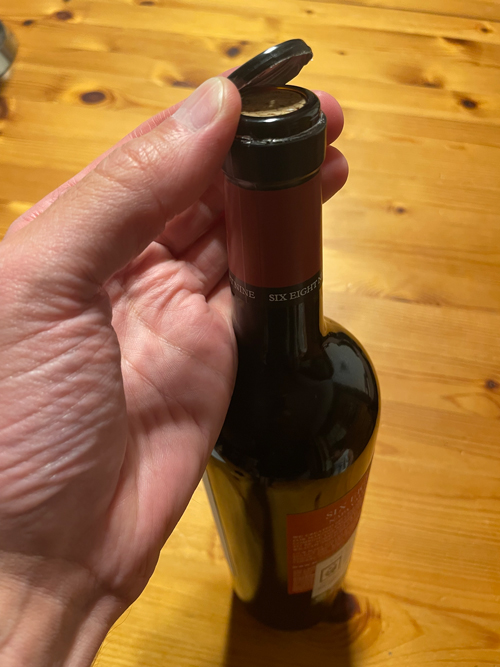Borrowed confidence

I was terrified of wine bottles.
Not generally, just the ones I had to open in front of customers at Lucky 32 in Winston-Salem during college.
The first time I tried, my hands shook. The foil wrapper caught my finger, sliced it open, and blood dripped onto the table. I remember standing there, mortified, as the guest politely looked away and I fumbled for napkins.
I told myself I'd never open another bottle again.
The problem was simple: I was a server at a quasi-upscale restaurant where wine mattered. Avoiding it meant smaller checks, fewer tips, and a gap in service my tables could feel. I wasn't solving the problem by hiding from it.
My roommate noticed. He was entrepreneurial by nature, always spotting angles I didn't see. "I'll open wine for your tables," he said. "Just pay me a couple bucks per bottle."
I accepted immediately.
I tracked everything back then—tables served, items sold, tips earned, all in Excel. It was obsessive, but it meant I could see patterns clearly.
Within a week, something unexpected happened: my tips didn't just hold steady after paying my roommate. They went up. Not a little.
Noticeably.
Guests assumed they were being served by someone who knew wine. The gesture elevated their experience. The confidence in the pour, the small ritual of it.
Perception shifted. My roommate made his fee. I pocketed the difference. And our guests left happier.
I think about that moment often when building products now.
The instinct when something breaks, when you're bleeding, literally or metaphorically, is to avoid it. To work around the weakness, to pretend it isn't there. But the real opportunity wasn't in me getting better at opening wine. It was in recognizing what the table actually needed: competence, confidence, and a better experience.
Sometimes the problem you're trying to solve isn't the one worth solving.